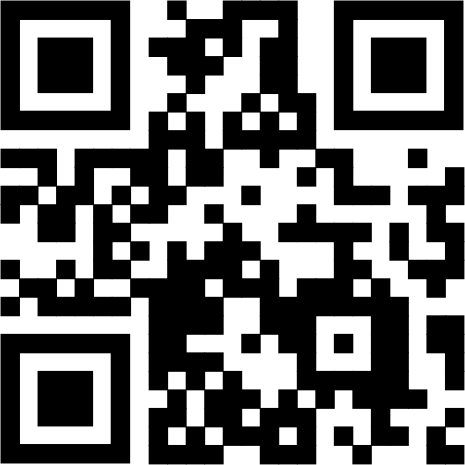(!) Since support from Microsoft will end on January 14th, 2020, Windows 7 will be excluded from the recommended environment from December 15th, 2019 on this site. Vì lý do Microsoft kết thúc hỗ trợ cho Windows 7 vào ngày 14/01/2020, Windows 7 sẽ là hệ điều hành không được khuyến khích sử dụng với trang web này từ ngày 15/12/2019.
Search by Category / Brand Tìm theo danh mục, nhãn hiệu
Search by Category Tìm theo danh mục
- Thể lệ và Giải thưởng cuộc thi "Thiết kế máy Tự động hóa 2025" do MISUMI Việt Nam tổ chức. Xem chi tiết.
- [Thông báo] Cập nhật địa chỉ kho tập kết hàng hóa tại khu vực miền Nam của MISUMI Việt Nam. Xem chi tiết.
[Announcement] Update on warehouse address in the Southern region of MISUIMI Vietnam. See more.
Timers / Calendar Timers(Time specifications:0.1 s to 10 m)
Brand |
|
|---|---|
| CAD |
|
| Days to Ship |
|
1 itemsMặt hàng
- Sort By
-
You can add up to 6 items per a category to the compare list.
![[Special Price Sellout Product, Only Available While Stocks Last] Solid-state Timer H3YN](//vn.misumi-ec.com/linked/material/el/OMR1/PHOTO/222300042814_001.jpg?$product_view_b$)
[Special Price Sellout Product, Only Available While Stocks Last] Solid-state Timer H3YN
OMRON
Production lot manufactured up until March 2017. For convenience, the suffix "-MSM" has been added. MISUMI warranty is of course valid and Omron provide a 1-year-long warranty from time of purchase. Timer is shaped similarly to the H3Y, and supports multiple time ranges and multiple operating modes. [Features]· EN 61812-1 compatible, conforms to the CE mark.· Supports multiple time ranges with switch-over between 4 ranges.· Supports multiple operating modes providing 4 functions in 1 device.· MY type relay and terminal compatible.· Compatible with the EN standard allowing export to Europe.· A semi-multi supply voltage range greatly reduces the number of maintenance supplies kept in stock. [Applications]· The timer acts as control equipment, switching the output signal at the preset time after the start signal is input.
Type Display method Mounting Method Panel cut dimensions Time specifications(s) Power Supply Voltage Output Method Representative Standard Dimension vertical(mm) Dimension width(mm) Dimension depth(mm) Timer Analog - - 0.1 s to 10 m Dedicated to DC Relay CE / UL / CCC / CSA 28 21.5 52.6 From: 906,455 VND Days to Ship: Số ngày giao hàng: Same day  Same day
Same day
| BrandNhãn hiệu |
|---|
| Product SeriesDòng sản phẩm |
| From |
| Days to ShipSố ngày giao hàng |
| Type |
| Display method |
| Mounting Method |
| Panel cut dimensions |
| Time specifications(s) |
| Power Supply Voltage |
| Output Method |
| Representative Standard |
| Dimension vertical(mm) |
| Dimension width(mm) |
| Dimension depth(mm) |
You can add up to 6 items per a category to the compare list. | |
| BrandNhãn hiệu | OMRON |
| Product SeriesDòng sản phẩm | [Special Price Sellout Product, Only Available While Stocks Last] Solid-state Timer H3YN |
| From | 906,455 VND |
| Days to ShipSố ngày giao hàng | Same day |
| Type | Timer |
| Display method | Analog |
| Mounting Method | - |
| Panel cut dimensions | - |
| Time specifications(s) | 0.1 s to 10 m |
| Power Supply Voltage | Dedicated to DC |
| Output Method | Relay |
| Representative Standard | CE / UL / CCC / CSA |
| Dimension vertical(mm) | 28 |
| Dimension width(mm) | 21.5 |
| Dimension depth(mm) | 52.6 |
Loading...Tải…
ConfigureTạo
Specification/DimensionsĐặc điểm kỹ thuật / Kích thướcĐặc điểm kỹ thuật / Kích thước
-
Type
- Timer
- Calendar timer
- Other
-
Display method
- LED
- Liquid Crystal
- Analog
- Other
-
Mounting Method
- Panel
- Plug-in socket
- Other
-
Panel cut dimensions
- 48x48
- Other
-
Time specifications(s)
- 0~3sec
- 0.001s to 9.999s
- 0.001s to 9999h
- 0.01s~9h59m
- 0.01s to 99.99s
- 0.01~99.99
- 0.01s to 9999h
- 0.01s to 9999.99h
- 0.04s to 0.5s
- 0.05min~10min
- 0.05sec~10sec
- 0.05~12min
- 0.05~12s
- 0.05s~100h
- 0.05s to 300h
- 0.1s to 1.0s
- 0.1 s to 1,200 h
- 0.1h to 3h
- 0.1m to 3m
- 0.1 min – 10 h
- 0.1 s – 10 min
- 0.1s to 10h
- 0.1s to 10m
- 0.1s~10h
- 0.1 m to 10 h
- 0.1 s to 10 m
- 0.1s to 12s
- 0.1s to 600h
- 0.1s to 999.9s
- 0.1s to 1200h
- 0.1s to 9990h
- 0.2m to 5m
- 0.2s to 5.0s
- 0.3s~30h
- 0.4~120s
- 0.5m to 10m
- 0.5s to 10s
- 0.5s~100s
- 1
- Control cycle: year (1-min units)
- 1s~3min
- 1 s – 10 min
- 1 min – 23 h 59 min × 7 days
- 1.0m to 30m
- 1.0s to 30s
- 1 min to 99 h 59 min
- 1s to 99min59s
- 1s to 120s
- 1.0 s to 120 s
- TS1: 9999.59.59 (h.m.s) TS2: 9999.23.59 (d.h.m) TS3: 9999h59,9 (h.m)
- 2.0m to 60m
- 2.0s to 60s
- 3-hour type
- 5
- 5.0s to 120s
- 6 s – 60 min
- Control cycle: 7-Day (1-min units)
- 10
- 24 h × 7 day (1-min units)
- 30
- 30s~1hrs
- 60
- 300
- 999.999s, 99h59m59s
- 1800
- 3600
-
Power Supply Voltage
- AC/DC
- AC-dedicated
- Dedicated to DC
-
Output Method
- Relay
- Transistor
- Other
-
Representative Standard
-
Dimension vertical(mm)
-
Dimension width(mm)
-
Dimension depth(mm)
Related Categories to Timers / Calendar TimersDanh mục liên quan đến Timers / Calendar Timers
FAQ Timers
- Question: How do I select the best timer or calendar timer for managing industrial equipment and ensuring precise operation control?
- Answer: To choose the timer or calendar timer, for effectively managing industrial equipment and ensuring precise control of operations there are several factors you should take into consideration
1. Type of timer: There are two types of timers.
1.1. Electromechanical timers, which offer accuracy but greater durability.
1.2. Electronic timers, known for their accuracy but being more susceptible to factors.
2. Timing Range: It is essential to select a timer that offers a timing range aligned with your requirements. Some timers provide timing options in seconds while others extend to days or even years.
3. Accuracy: The level of accuracy offered by the timer plays a role in guaranteeing control of operations. Choose a timer that meets your desired level of accuracy.
4. Environmental conditions: Consider the conditions within which the timer will be utilized. Certain timers are designed exclusively for use while others can withstand outdoor elements.
5. Special Features: Some timers come with features like multiple channels, programmable sequences, and alarms among others. - Question: What are the key differences between analog and digital timers in terms of accuracy, visibility, and ease of operation in industrial applications?
- Answer: The key differences between analog and digital timers in terms of accuracy, visibility, and ease of operation in industrial applications are as follows:
Accuracy
Analog timers are less accurate than digital timers because analog timers rely on mechanical components, which can be affected by factors such as temperature, humidity, and vibration.On the other hand digital timers use electronic components, which are more resistant to these factors.
Visibility
Digital timers are easier to read than analog timers. This is because digital timers display the time in a clear and concise format. Analog timers, on the other hand, use dials and hands, which can be difficult to read, especially in low-light conditions.
Ease of operation
Digital timers are easier to operate than analog timers. This is because digital timers have buttons or dials that can be used to set the time and other parameters. Analog timers, on the other hand, may require users to manually turn knobs or set levers, which can be more time-consuming and difficult.
In general, digital timers are the better choice for industrial applications where accuracy and visibility are important. However, analog timers may be a good choice for applications where cost or durability is a primary concern. - Question: How does a calendar timer work in controlling industrial operations throughout the week, and can it manage different on/off times throughout the day?
- Answer: Calendar timers work by sending signals to machine or industrial equipment at specific times on specific days of the week. They can manage different on/off times throughout the day by being programmed accordingly. For example:
Turn on a machine at 9:00 AM on weekdays and turn it off at 6:00 PM on weekdays.
Turn on a machine at 10:00 AM on Saturdays and turn it off at 2:00 PM on Saturdays.
Turn on a light fixture at sunset and turn it off at sunrise.
Calendar timers are a versatile tool that can be used to automate and control a wide variety of industrial operations. They can help to improve efficiency, reduce costs, and extend the lifespan of equipment. - Question: How do solar time switches utilize annual sunset and sunrise times to control equipment, and can they adjust to varying daylight conditions throughout the year?
- Answer: Solar time switches can adjust to varying daylight conditions throughout the year by using an algorithm that takes into account the date and time of year. This algorithm ensures that the equipment is turned on and off at the correct times, regardless of the length of the day. For example, a solar time switch could be programmed to turn on a streetlight at sunset and turn it off at sunrise.
- Question: How can implementing timers enhance energy efficiency and optimize operational productivity in an industrial setting?
- Answer: Timers can enhance energy efficiency and optimize operational productivity in an industrial setting by:
1. Reducing energy waste: Timers can be used to turn off equipment when it is not in use, such as during off-hours or when there is no product being processed. This can help to reduce energy consumption and save money on energy bills.
2. Improving operational efficiency: Timers can be used to ensure that work is performed within a specified period of time. Can be used to monitor and improve work processes.
3. Extending equipment lifespan: Timers can be used to prevent equipment from being overworked, which can help to extend its lifespan. For example, a timer can be used to turn off a motor after a certain amount of time, preventing it from overheating.


![[Special Price Sellout Product, Only Available While Stocks Last] Solid-state Timer H3YN](http://vn.misumi-ec.com/linked/material/el/OMR1/PHOTO/222300042814_001.jpg?$product_view_b$)
![[Special Price Sellout Product, Only Available While Stocks Last] Solid-state Timer H3YN](http://vn.misumi-ec.com/linked/material/el/OMR1/PHOTO/222300042814_001.jpg?$product_view_c$)



How can we improve?
How can we improve?
While we are not able to respond directly to comments submitted in this form, the information will be reviewed for future improvement.
Customer Privacy Policy
Thank you for your cooperation.
While we are not able to respond directly to comments submitted in this form, the information will be reviewed for future improvement.
Please use the inquiry form.
Customer Privacy Policy